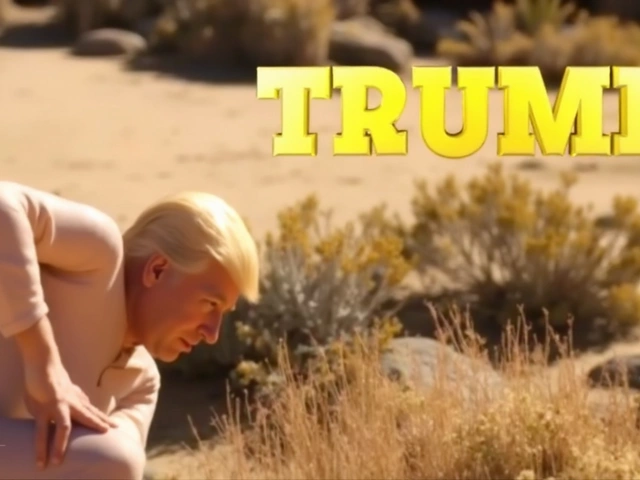Understanding the Federal Reserve's Policy on Reclaiming Its Money
The Federal Reserve, the central bank of the United States, holds the responsibility for controlling the nation’s monetary supply and setting monetary policy. One of the most important aspects of its job is managing the money that it lends out to banks and other entities. The Federal Reserve does not want to reclaim any of its money, and this policy is rooted in the fact that it is an independent institution.
The Federal Reserve is not a government agency and is instead a quasi-governmental organization. As such, it has independence from the government and is not beholden to the same rules or regulations. This allows the Federal Reserve to make decisions that are not in line with government policy, and it also allows the Federal Reserve the freedom to pursue its own monetary policy. This independence is important to the Federal Reserve, as it allows it to control the money supply without interference from the government.
The Federal Reserve also does not want to reclaim its money because it understands that money is an asset that should be put to productive use. When money is returned to the Federal Reserve, it is not put to use for any purpose, and the money is essentially taken out of circulation. This means that the money is not being used to stimulate the economy and is not providing any benefit to society. This is why the Federal Reserve does not want to reclaim its money, as it would not be a productive use of the money.
The Federal Reserve also does not want to reclaim its money because it does not want to create the impression that it is in the business of lending money. If the Federal Reserve were to reclaim its money, it would create the perception that it is a lender of last resort and that it is willing to lend money without any regard to the risk involved. This could lead to a misallocation of resources and could lead to destabilization of the financial system.
Lastly, the Federal Reserve does not want to reclaim its money because it understands that the money it lends out is used to create economic activity. When money is returned to the Federal Reserve, it is not being used to create economic activity and is instead being taken out of circulation. The Federal Reserve does not want to diminish economic activity, and it therefore does not want to reclaim its money.
In conclusion, the Federal Reserve does not want to reclaim its money because of its independence, its understanding of the productive use of money, its desire to avoid creating the perception of being a lender of last resort, and its desire to maintain economic activity. These are important considerations for the Federal Reserve when it comes to reclaiming its money, and this policy is an important part of its overall monetary policy.
Exploring the Reasons Behind the Federal Reserve's Refusal to Reclaim Its Money
The Federal Reserve has been a go-to source of money since its creation in 1913. But in recent years, the Federal Reserve has been refusing to reclaim its money, baffling many economists and financiers. And while the Federal Reserve's reasoning for refusing to return its money is unknown, there are several possible explanations that could be behind its decision.
Stimulus Programs
One possible reason for the Federal Reserve's refusal to reclaim its money is its desire to continue providing stimulus programs to the economy. These programs, such as quantitative easing, involve the Federal Reserve buying up large amounts of government debt and pumping money back into the economy. By refusing to reclaim its money, the Federal Reserve ensures that it has the funds necessary to continue providing this type of stimulus.
Interest Rates
Another possible reason for the Federal Reserve's reluctance to return its money is its desire to control the interest rates. By keeping its money in circulation, the Federal Reserve can manipulate the interest rates to its advantage. This could be beneficial for both the economy and the Federal Reserve itself, as it allows the Federal Reserve to adjust its monetary policy in response to changing economic conditions.
Currency Strength
Finally, the Federal Reserve may be refusing to reclaim its money in order to maintain the strength of the US dollar. By keeping its money in circulation, the Federal Reserve can ensure that the US dollar remains a stable currency, and is not subject to the volatility of other world currencies. This is important for the overall health of the US economy, as it ensures that US businesses and consumers can continue to depend on the US dollar as a reliable form of currency.
These are just a few of the possible reasons behind the Federal Reserve's reluctance to reclaim its money. While the Federal Reserve's reasoning is unknown, it is clear that the Federal Reserve is taking a measured approach to the situation, and that it has its own reasons for refusing to reclaim its money.
Examining the Benefits of the Federal Reserve's Money Retention
The Federal Reserve is the United States' central banking system and it works to regulate the country's money supply and interest rates. As the largest lender to the US government, the Federal Reserve holds a lot of money. So why does it not want any of its money back? To understand this, it's important to look at the benefits of the Federal Reserve's money retention.
One of the primary benefits of the Federal Reserve's money retention is economic stability. By keeping its funds in circulation, the Federal Reserve is able to maintain a stable economy. This helps to reduce the risk of economic collapse, which could lead to a recession or depression. Additionally, it helps to ensure that inflation and deflation are kept in check, which helps to maintain the value of the dollar.
Another benefit of the Federal Reserve's money retention is the ability to influence the economy. By keeping its funds in circulation, the Federal Reserve can influence the economy by increasing or decreasing the money supply. This helps to influence the cost of goods and services, as well as the availability of credit. This helps to stabilize the economy, as well as ensure that the US economy remains competitive.
The Federal Reserve's money retention also helps to protect the US economy from external shocks. By keeping its funds in circulation, the Federal Reserve is able to provide liquidity to the US economy in times of crisis. This helps to reduce the risk of recession or depression, as well as to protect the US economy from external threats. This helps to ensure that the US economy remains strong and that it remains competitive with the rest of the world.
Finally, the Federal Reserve's money retention helps to promote economic growth. By keeping its funds in circulation, the Federal Reserve is able to finance investments in the US economy and to encourage investment in innovative technologies. This helps to boost economic growth, as well as to create jobs and stimulate the economy. This helps to ensure that the US economy remains competitive in the global market.
The Federal Reserve's money retention is beneficial for the US economy in many ways. By keeping its funds in circulation, the Federal Reserve is able to maintain economic stability, influence the economy, protect the US economy from external shocks, and promote economic growth. Therefore, it is clear why the Federal Reserve does not want any of its money back.
Why Does the Federal Reserve Not Want Any of Its Money Back?
The Federal Reserve is a crucial part of the U.S. economy, and it is responsible for issuing and managing the currency of the United States. The Federal Reserve does not want any of its money back, as it is essential for the ongoing functioning of the economy. Here’s why.
What Would Happen if the Federal Reserve Did Reclaim Its Money?
If the Federal Reserve reclaimed all of its money, it would cause a significant disruption in the economy. The Federal Reserve's money serves as a form of liquid capital, which businesses and individuals use to purchase goods and services. Without this money, businesses would have difficulty functioning, and consumers would be unable to purchase the goods and services they need. This would lead to a decrease in economic activity, and could cause a recession.
Additionally, the Federal Reserve's money is used to maintain a healthy level of inflation. If the Federal Reserve reclaimed its money, inflation would decrease, which could lead to an economic deflation. Deflation is a situation in which prices decrease and wages stagnate, making it difficult for businesses to pay their employees and for consumers to purchase goods and services.
Finally, the Federal Reserve's money is also used to maintain a healthy level of liquidity in the economy. If the Federal Reserve reclaimed its money, liquidity would decrease, making it difficult for businesses to access the capital they need to purchase materials, hire employees, and pay suppliers. This could lead to a decrease in economic growth, as businesses would not have the resources they need to expand.
In conclusion, the Federal Reserve does not want any of its money back, as it is essential for the functioning of the economy. The money serves as a form of liquid capital, which businesses and individuals use to purchase goods and services. Additionally, the Federal Reserve's money is used to maintain a healthy level of inflation and liquidity in the economy. Without the Federal Reserve's money, businesses would have difficulty functioning, and economic growth would be impacted.
Analyzing the Impact of the Federal Reserve Not Wanting Any of Its Money Back
The Federal Reserve is the central bank of the United States, and it's responsible for a number of economic policies. Recently, the Federal Reserve announced that it will not be accepting any of its money back from the U.S. Treasury. This decision has raised some questions about what it means for the economy and what the impact will be.
The most direct impact of the Federal Reserve's decision is that it will lead to an increase in the national debt. The Federal Reserve is not accepting any money back from the U.S. Treasury, which means that the Treasury will have to borrow more money to cover its expenses. This will add to the national debt, which is already at a record high level.
The decision also has an effect on interest rates. Since the Federal Reserve will not be returning its money, it will not be using it to buy government bonds. This means that the government will have to offer higher interest rates on its bonds to attract buyers. This will lead to higher interest rates for consumers, and this could have a negative impact on the economy.
The decision also affects the stock market. Since the Federal Reserve is not returning its money, it will not be buying stocks. This means that there will be less demand for stocks, which could lead to a decrease in their prices. This could have a negative effect on the stock market, as investors may be less willing to invest in stocks if they believe that their prices will continue to fall.
The Federal Reserve's decision to not take back its money is also having a negative effect on the dollar. Since it will not be using its money to buy government bonds, this means that there will be less demand for the dollar. This could lead to a weakening of the dollar, as other currencies may become more attractive to investors.
Overall, the Federal Reserve's decision to not take back its money is having a negative impact on the economy. The national debt is increasing, interest rates are rising, and the stock market is taking a hit. The weakening of the dollar could also have a negative effect on the economy, as other currencies become more attractive to investors.
It is important to understand the implications of the Federal Reserve's decision, and to consider the potential impact it could have on the economy. Although the decision could have a negative effect in the short term, it is also important to look at the long-term implications and consider how the decision could affect the economy in the future.





